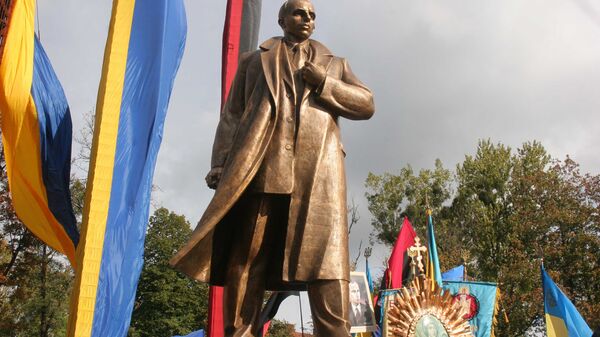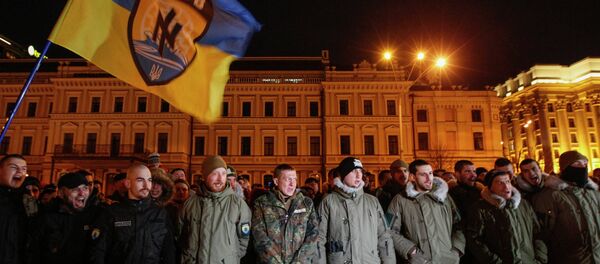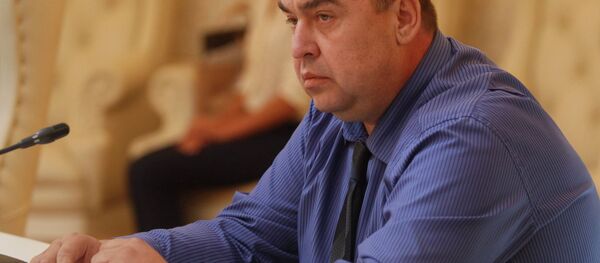"It is a vicious circle: Kiev blocks the work of Russian journalists, who are trying to draw attention to manifestations of neo-Nazism [in Ukraine], and the West (both the leadership and the public) does not see these manifestations and the violations of freedom of speech. It's a terrible trend," Zakharova wrote on her Facebook page Friday.
On Thursday, hundreds of people marched through the streets of the Ukrainian capital, carrying torches to mark the birthday of Ukrainian nationalist Stepan Bandera, who lived in the first half of the 20th century and, with initial German support, worked to establish a unified Ukrainian state that would be inhabited exclusively by ethnic Ukrainians.
In 2010, the outgoing president of Ukraine Viktor Yushchenko awarded Bandera the posthumous title of Hero of Ukraine, but the award was condemned by the European Parliament, as well as Russian, Polish and Jewish organizations. It was declared illegal and was officially annulled in 2011.
During the Thursday rally, dedicated to Bandera, two Russian LifeNews journalists, covering the event, were attacked, according to the TV channel.
In December, 2014, the 69th session of the UN General Assembly adopted a resolution proposed by Russia on combating the glorification of Nazism with 133 votes in favor. The United States, Canada, Ukraine and the Republic of Palau were the only countries to vote against the resolution.
Russia has repeatedly stressed that outbursts of aggressive nationalism and neo-Nazism in Ukraine have become widespread. Far-rights group were actively involved in the February coup in Kiev and in the military operation, launched by Ukrainian authorities last spring against predominantly Russian-speaking South-East of the country.



